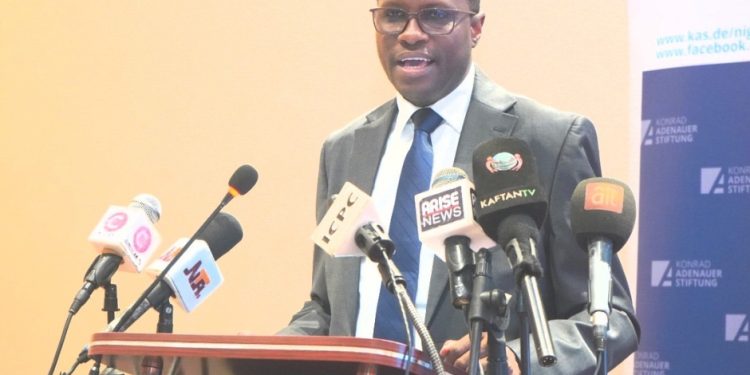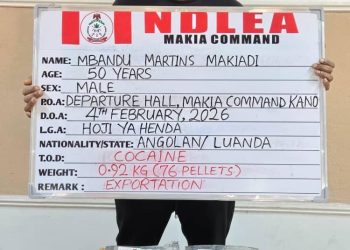By Nkechi Eze
The Chairman of the Independent Corrupt Practices and Other Related Offences Commission (ICPC), Dr. Musa Adamu Aliyu (SAN), has stressed the urgent need for administrative restructuring and capacity building in Nigeria’s local government system as a critical pathway to reducing corruption and strengthening grassroots governance.
Demola Bakare the commission’s spokesperson in an official signed statement disclosed that Dr. Aliyu made this assertion while speaking at a one-day policy dialogue convened by the Civil Society Legislative Advocacy Centre (CISLAC) at the Abuja Continental Hotel on Wednesday, 18th June 2025.
Addressing participants, the ICPC Chairman underscored the role of accountability in the efficient running of local governments, revealing that the Commission had uncovered several instances where public funds were misused under the guise of election preparations at the local level.
“In one such instance,” he disclosed, “substantial sums were illicitly moved, raising serious concerns about transparency and accountability.”
Dr. Aliyu described the recent Supreme Court ruling on local government autonomy as a “significant step” toward strengthening good governance at the grassroots. However, he cautioned that legal autonomy alone is insufficient without complementary efforts by key stakeholders to enforce and preserve the ruling’s spirit.
In line with this, he announced that the ICPC, in partnership with the Centre for Fiscal Transparency and Public Integrity, had launched the Accountability and Corruption Prevention Programme for Local Governments (ACPP-LG). This initiative, he said, is structured to promote transparency across five core thematic areas: fiscal transparency, human resource management, open procurement, citizen engagement, and corruption control.
He also warned against judicial subversion of apex court decisions through unnecessary litigation, pointing to the landmark case AG Ondo State v. AG Federation, which reaffirmed ICPC’s powers to investigate corruption cases. He noted that despite this decision, new cases continue to emerge in lower courts, indirectly contesting the authority of the Supreme Court.
“The ICPC remains firmly committed to enforcing the Supreme Court’s decision on local government autonomy using the Corrupt Practices and Other Related Offences Act, 2000, and other relevant legal frameworks,” Dr. Aliyu stated. He emphasized that Section 287(1) of the 1999 Constitution (as amended) mandates all authorities to comply with Supreme Court decisions.
The ICPC Chairman also called on members of the legal profession to resist being used to challenge settled legal principles. He urged lawyers to adhere strictly to ethical conduct and avoid participating in attempts to undermine judicial precedents, particularly referencing the ruling in AG Federation v. AG Abia State and Others.
In his concluding remarks, Dr. Aliyu stressed that restoring integrity to local governance hinges on sustained collaboration between civil society, anti-corruption agencies, and professional bodies, as well as strict adherence to constitutional values.
Earlier in his opening address, Executive Director of CISLAC, Auwal Ibrahim Musa (Rafsanjani), emphasized the importance of full autonomy for local governments. He maintained that for democracy and development to thrive at the grassroots, local government structures must be allowed to function independently and transparently.
The dialogue attracted civil society actors, legal professionals, anti-corruption advocates, and government officials committed to enhancing transparency and efficiency in Nigeria’s third tier of government.















